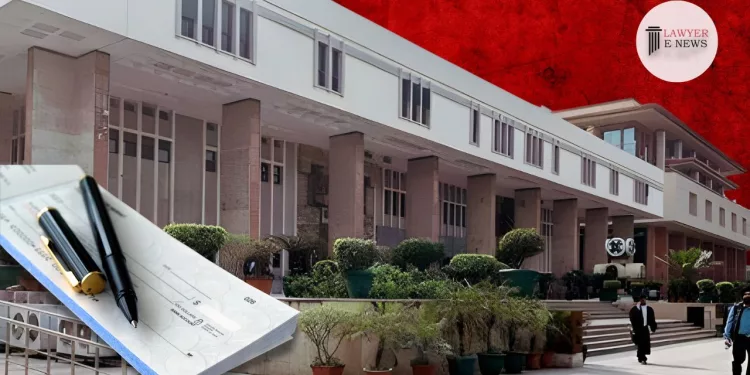Need for Specific Allegations for Vicarious Liability U/S 138 N.I.Act: High Court of Delhi Acquits ‘Agent’ in Cheque Bounce Case

In a significant judgement, the High Court of Delhi, led by Hon’ble Mr. Justice Navin Chawla, has quashed criminal proceedings against Pravin Jain, an agent, in a cheque bounce case, underscoring the importance of specific allegations to establish vicarious liability.
This ruling pertains to the petitions filed under Article 227 of the Constitution of India and Section 482 of the Code of Criminal Procedure (CrPC) for quashing of criminal proceedings in complaints under Section 138 of the Negotiable Instruments Act, 1881.
Factual Background: The petitioner, Pravin Jain, was accused as an agent in two criminal complaints for dishonored cheques issued by a firm. The complaints were initially filed in Ahmedabad and later transferred to New Delhi. The primary allegation was that Jain acted as an agent without any specific involvement in the issuance of the cheques or in the firm’s management.
Role Clarity: The court observed that mere labeling as an ‘agent’ does not establish criminal liability. Specific roles and responsibilities must be proven.
Precedents and Principles: Referring to the Supreme Court judgement in Siby Thomas v. Somany Ceramics Ltd., the court emphasized the necessity of clear allegations in a complaint to establish vicarious liability under Section 141 of the Negotiable Instruments Act.
Lack of Specific Allegations: The complaints lacked specific accusations against Jain concerning his role in the conduct of the firm’s business at the time of the offense.
Judgement: The proceedings against Pravin Jain were quashed, with the court finding insufficient grounds to proceed under Section 138 of the Negotiable Instruments Act. The case will continue against the remaining accused.
Date of Decision: February 13, 2024
Pravin Jain vs. Alps Industries Limited






